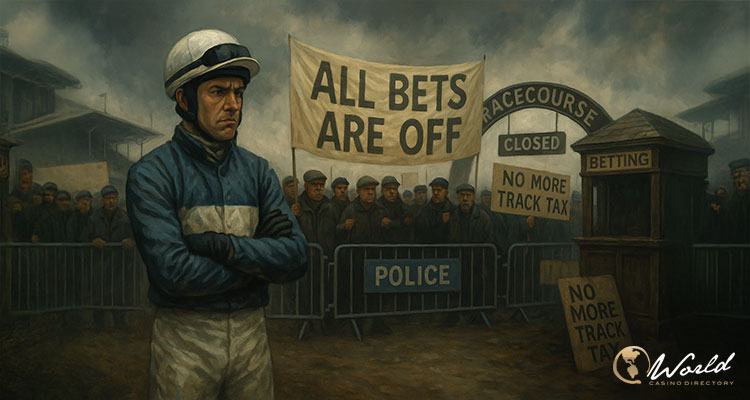British racing is staging an unprecedented, sport-wide stoppage to oppose the Government’s move to fold online betting duties into a single, higher band. For the first time in modern history, racecourses, owners, trainers and jockeys have refused to race, cancelling fixtures at Carlisle, Uttoxeter, Lingfield and Kempton on 10 September. Instead, leading figures are heading to Westminster to underline what they say is an existential threat to a £4–£4.1 billion industry that supports about 85,000 jobs.
Why harmonising to 21% is so contentious
The Treasury proposal would align horse racing with “games of chance” at 21%, up from the current 15% duty on racing. Industry leaders argue the sport’s ecosystem is distinct from online casino products, not least because bookmakers already pay an additional 10% of gross profit on racing into a statutory levy. Economic analysis commissioned by the British Horseracing Authority (BHA) suggests aligning the rate could deliver a heavy blow. The BHA estimates a £330 million revenue hit across the first five years and identifies 2,572 jobs at risk as betting operators seek to offset higher taxes by increasing prices, trimming bonuses and reducing advertising and marketing budgets. A separate scenario cited by the authority emphasises the immediate shock to the system: “Independent economic analysis suggests [the tax hike] would cost the sport £66m, or the worst-case scenario £160m, and put around 2,700 jobs at risk in year one.”
The BHA’s acting chief executive, Brant Dunshea, said the point of the action is to create a single moment of focus near the heart of Government. “We’re trying to create a space when leaders from across the sport, stakeholders and participants can come together at the heart of government, in Westminster, and sound out our clear message to government around the proposal to harmonise the betting duties,” he said, as LBC reports. “And that is that we don’t support that and we believe British racing should be treated differently to other betting products because of all the wonderful things we bring to Britain’s social fabric – 85,000 jobs across the country. We support communities right across the nation and we are global leaders and an important soft power lever for government.” The campaign bannered as “Axe the Racing Tax” coincides with the run-up to the Autumn Budget and is estimated to cost around £200,000 in lost revenue for the sport. Organisers describe that figure as a proportionate price for a day of awareness intended to demonstrate unity and urgency.
Economic footprint, growth headroom, and the risk of displacement
Racing stakeholders emphasise that the sport’s supply chain is interwoven with rural economies, where racecourses act as employers and social hubs. The industry contends that a higher harmonised duty could drive punters toward other products or even into unregulated markets if licensed operators respond by offering worse odds or by reducing promotional value. The BHA points to survey work of 7,500 people indicating significant growth potential, with 34% identifying as potential fans and 33% as casual fans. The concern is that diminished investment, lower marketing spend and pressure on prize money could stall that growth and weaken the grassroots that feed the professional tier.
The day’s racing calendar has been deliberately cleared to sharpen public attention. No British horseracing will be shown on television, there will be no printed jersey lists, and horses will remain at home as trainers, jockeys and other participants gather at the Queen Elizabeth II Centre in Westminster. With the exception of cancellations due to weather, equine disease, or national crises such as the Covid-19 pandemic, this marks the first occasion in which the sport has collectively refused to race in protest at a Government proposal.
International programmes continue to provide viewing options for fans, with Ireland staging an evening card at Cork and additional action from Hong Kong’s Happy Valley and France’s Compiègne during the day. Domestically, the four cancelled meetings will be rescheduled for later dates. The industry’s next steps hinge on whether ministers reconsider harmonisation for racing or maintain a path that the sport’s leaders believe could erode its financial base and cultural role.



